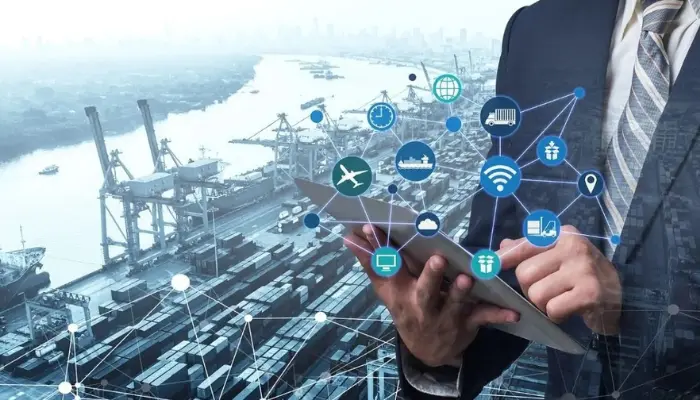The Emerging Technologies That Will Dominate in 2025.
If there’s one thing we learn quickly in this world, it’s that technology never stops evolving. Just as we get used to one innovation, another comes along and revolutionizes everything.
Advertising
With that in mind, 2025 promises to be a year full of technological changes that will impact everything from how we work to the simplest aspects of our daily lives.
Advertising
In this article, we’ll show you, in a straightforward and simple way, the main technologies that will be trending, how they will work, and how they can change our lives.
Artificial Intelligence and Machine Learning
If there’s something already present in our lives that will grow even more, it’s Artificial Intelligence (AI). You know when Netflix gives you the perfect recommendation or when Waze finds the best route to avoid traffic? That’s AI working behind the scenes.
Advertising
By 2025, AI will be much more advanced. We’re talking about virtual assistants that understand what you want even before you ask and systems capable of learning and making real-time decisions.
An example of this will be the use of AI in healthcare, helping doctors identify diseases more accurately, or even in schools, with personalized platforms for each student.
How does this impact you?
- Automation of tasks at work, freeing up time for what truly matters.
- Personalized experiences in shopping, entertainment, and services.
- Greater efficiency in public services, such as transportation and healthcare.
Quantum Computing

Quantum computing still seems like something out of a sci-fi movie, but it’s closer than you think. Instead of working like today’s computers, which process information linearly, quantum computers can perform thousands of calculations simultaneously.
By 2025, companies like Google and IBM promise major advances in this field. They will use this technology to solve complex problems that current computers can’t handle, such as developing new medicines or improving security systems.
What does this change?
- Faster and more precise solutions in areas such as healthcare, scientific research, and energy.
- Advances in cybersecurity, creating more robust methods to protect our data.
- The ability to create hyper-realistic simulations, useful for training and education.
Extended Reality (XR): Virtual, Augmented, and Mixed
Have you ever imagined trying on clothes without leaving home or taking a class as if you were in a real classroom, but virtually? That’s exactly what XR is set to deliver. This technology combines virtual reality (VR) and augmented reality (AR) to create more immersive experiences.
By 2025, XR will dominate the market. We’ll see its applications in entertainment, with even more realistic games, and in areas like healthcare, with simulations to train doctors, or in education, making classes more dynamic and engaging.
What’s coming next:
- Mixed reality in games and movies, creating more interactive experiences.
- Work tools that use XR for meetings and presentations.
- Apps using AR to simplify online shopping or even help with home repairs.
5G and the Dawn of 6G
5G has already started making its way into our lives, but its widespread adoption will be much more visible by 2025. And it’s not just about faster internet: we’re talking about a fully connected world. With 5G, smart cities, autonomous cars, and smart homes will become a reality.
Meanwhile, 6G, currently under development, promises even higher speeds, enabling things we can barely imagine today.
How will this change your life?
- Seamless streaming, even in high definition.
- Connected devices at home, like refrigerators and washing machines, working in sync.
- Autonomous vehicles communicating with traffic lights and other cars to prevent accidents.
Sustainable Energy and Green Technologies
Concerns about the environment have never been greater, and technology is stepping in to provide solutions. By 2025, we’ll see incredible advancements in renewable energy, such as more efficient solar panels and longer-lasting batteries.
Additionally, we’ll have technologies that capture carbon and reduce pollution, as well as smart grids that help distribute energy more efficiently.
Everyday benefits:
- Lower electricity bills thanks to affordable solar energy.
- Cheaper electric vehicles with greater range.
- Reduced carbon footprints in industries and businesses.
Biotechnology and Digital Health
Have you heard about gene editing? By 2025, technologies like CRISPR will enable the modification of genes to cure diseases that were once considered incurable. In addition, wearable devices like smartwatches will become even more advanced, monitoring your health in real-time.
Telemedicine, which grew significantly during the pandemic, will become the norm, with online consultations and remote diagnostics becoming more accessible.
Practical examples:
- Wearables that monitor blood pressure, oxygen levels, and even detect diseases early.
- Personalized medications to treat specific problems for each individual.
- More precise surgeries performed with the help of robots and AI.
Blockchain and Web 3.0
If you think blockchain is only for cryptocurrencies, it’s time to think again. This technology will be used for everything, from digital contracts to ensuring product authenticity.
Web 3.0, based on blockchain, promises to transform the internet as we know it, making it more decentralized and democratic. Imagine an internet where you have greater control over your data and privacy.
What to expect:
- Platforms without intermediaries, where content creators earn more.
- Transparency in financial and commercial transactions.
- Enhanced security for online users and businesses.
Advanced Robotics and Automation
Robotics has made giant leaps in recent years, and by 2025, it promises to be even more present in our daily lives and workplaces. Robots are becoming smarter, more versatile, and accessible, meaning they won’t just be futuristic concepts but practical solutions to everyday problems.
From handling household cleaning to aiding large-scale production, they’ll be everywhere.
So-called “cobots” — collaborative robots — will play a key role. These robots are designed to work side by side with humans, assisting in tasks that require precision, repetition, or intense physical effort. And it doesn’t stop there: they’ll also revolutionize sectors like agriculture and logistics.
Where robotics will shine in 2025:
At home:
Imagine homes equipped with robots that not only vacuum the floor but also organize spaces, prepare simple meals, and even monitor security. These domestic assistants will be more affordable and efficient, simplifying the lives of millions of people.
In industries:
Automation will dominate factories, increasing productivity and reducing costs. Robots will be able to assemble products, perform quality inspections, and operate complex machinery, all with greater precision and fewer human errors.
In agriculture:
The agricultural sector will also benefit greatly. Specialized robots will plant, tend to crops, and harvest them more efficiently and sustainably. They’ll even monitor soil conditions and predict issues before they arise, helping farmers save time and resources.
In healthcare and rehabilitation:
Beyond traditional sectors, advanced robots will assist in delicate surgeries and support individuals with reduced mobility, creating more inclusive solutions.
Why does this matter?
Advanced robotics and automation aren’t just “cool” technologies. They represent a future where time-consuming or dangerous tasks can be completed faster, safer, and more efficiently.
For humans, this means more time to focus on what truly matters, while robots take over repetitive or exhausting jobs. The future is here — and it’s robotic!
Space Exploration and Space Technology
The space race is no longer just between nations. Private companies like SpaceX are now leading the charge to explore beyond Earth. By 2025, we can expect even more ambitious missions, such as the colonization of the Moon and plans to reach Mars.
Moreover, space technology is bringing tangible benefits here on Earth, including advancements in communication and climate monitoring.
Key advancements:
- Satellite internet providing coverage in remote areas.
- Development of stronger and lighter materials.
- Environmental monitoring to combat natural disasters.
The future is approaching fast, and 2025 is shaping up to be a year filled with technological transformations. From AI to renewable energy, these innovations are not only going to change how we live but also offer solutions to the challenges of our time.
The advice here is to stay informed, explore these trends, and perhaps even prepare to take advantage of the opportunities they will create. After all, technology isn’t just for specialists — it’s for everyone!





